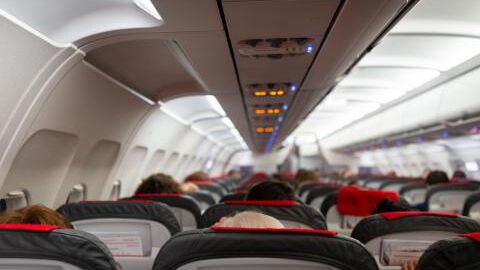Could it become compulsory to weigh yourself before getting on a plane? According to information from CNN, the British start-up company Fuel Matrix is considering this possibility for a specific purpose: to reduce the environmental impact of plane journeys which currently represents 2 to 3% of the world’s CO2 emissions.
Discover our latest podcast
This innovative idea comes at a time when multiple countries are seeking new strategies to reduce the carbon emissions incurred by air travel. Moreover, it should not prove too problematic to implement. Many people worry that weighing yourself before getting on a plane could lead to ‘body-shaming’ in airports and the practice could be viewed as intrusive by some flyers. But weighing each passenger could be the only solution to allow airlines to tailor their fuel requirements accurately according to their flight schedule.
‘Clearly while you’re standing there being scanned, you could also be being weighed’
There are already numerious methods for evaluating how much weight will be loaded on each plane by looking at general estimations of the average body mass of men, women and children as well as luggage weight. And although this could cause an ethical dilemma, Roy Fuscone, CEO at Fuel Matrix, believes that passengers could anonymously enter their weight data on reserving their ticket, or even during the security checks you go through prior to boarding.
‘You stand in a scanner that goes around you. Now clearly while you’re standing there being scanned, you could also be being weighed. It would be very discreet, very private and very confidential,’ he explains.
It is worth mentioning that weighing passengers before they board is already in practice in French Polynesia and on the Fiji Islands where trips are generally made on very small airplanes, as Slate says.
‘I’ve never seen anyone complain,’ assures Roy Fuscone, before warning against a potential problem.
‘I just think if airlines started weighing passengers, then eventually, they would start charging obese passengers more, and that wouldn’t fly with passenger rights groups.’















